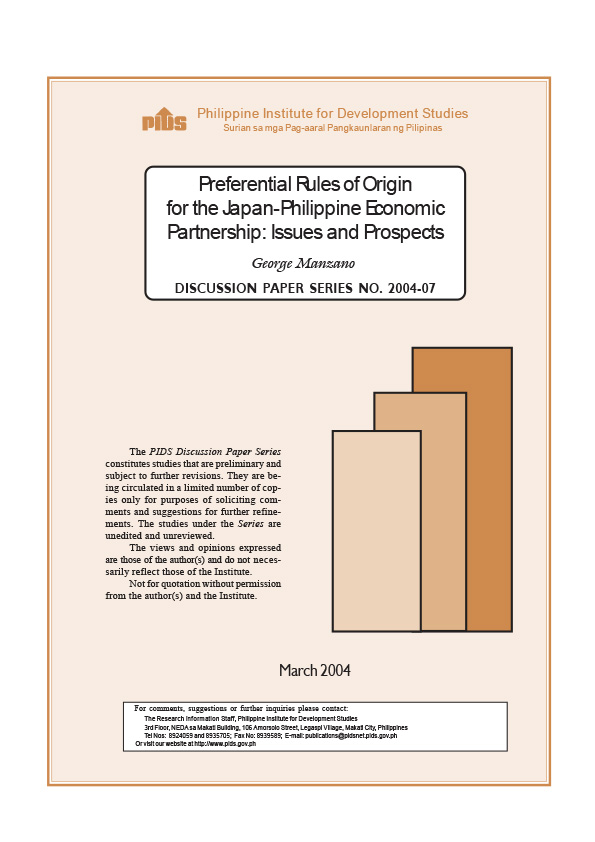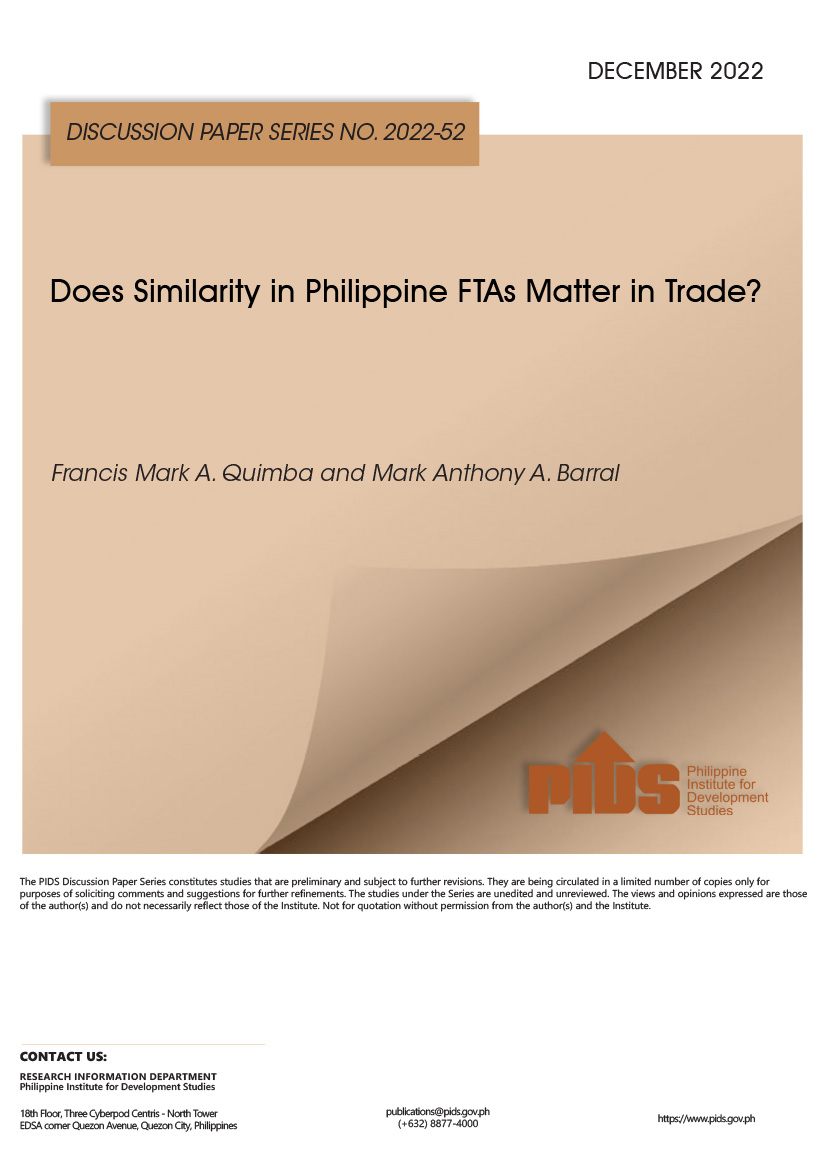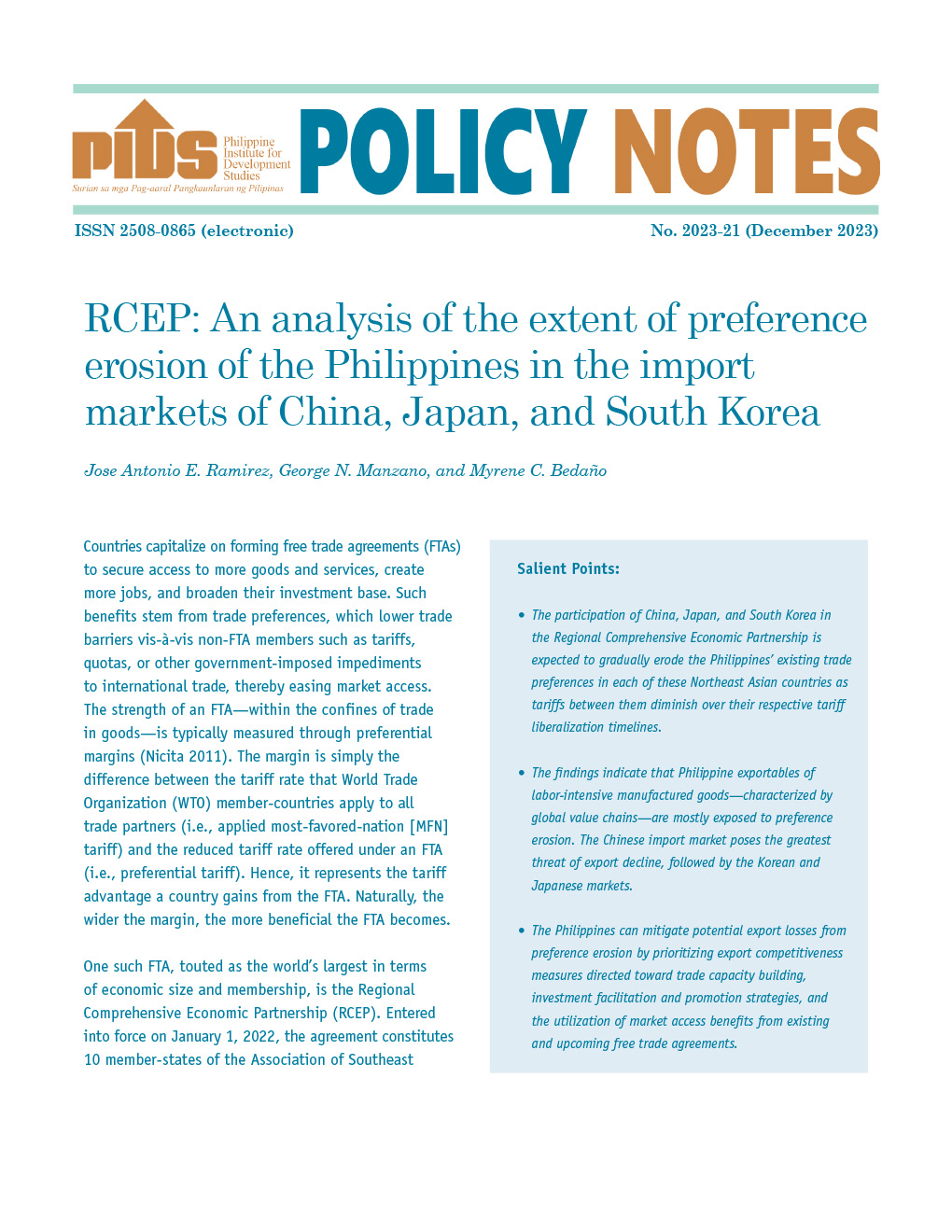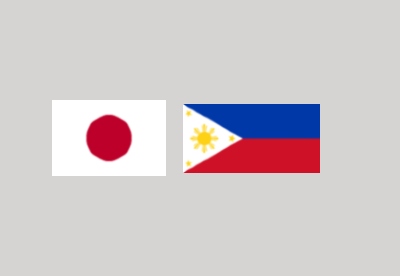The design of rules of origin (ROO) in preferential trade agreements is critical because to the extent that it determines which products are eligible for trade preferences, it influences the magnitude of economic benefits arising from a free trade area (FTA) and who gets them. The challenge in the JPEPA is to craft an ROO that fosters trade but at the same time pegs transaction costs low. This article reviews the nature and principles of different ROO regimes and highlights the economics of ROO setting. Three conclusions emerge from the study. First, given current (2001) level of exports and tariff structures, Japan will stand to benefit more in terms of enhanced market access under the JPEPA. Second, there are indications that Philippine exports to Japan are well placed to satisfy varying levels of ROO restrictions under a value added approach. Third, the existing bilateral template on the ROO under the Japan-Singapore Economic Partnership Agreement (JSEPA) will not unduly prejudice Philippine access to the Japanese market if it were to be adopted by the JPEPA.













